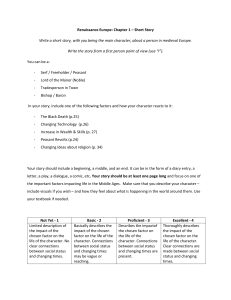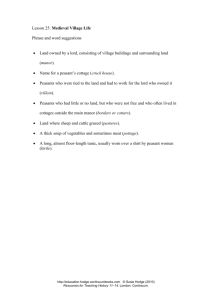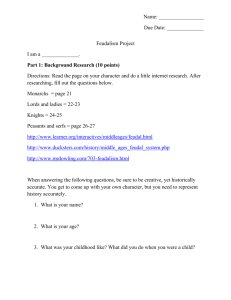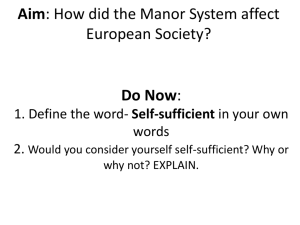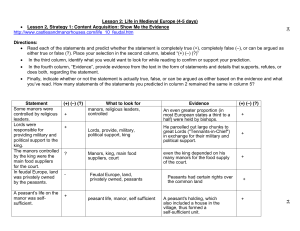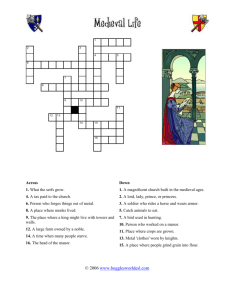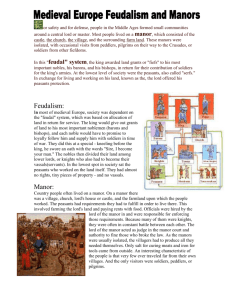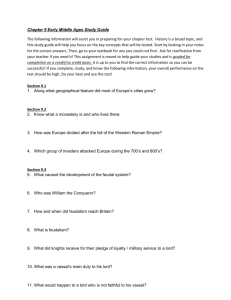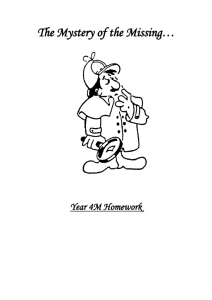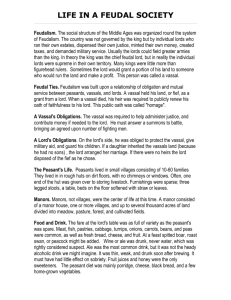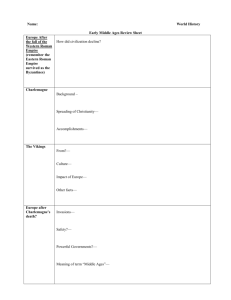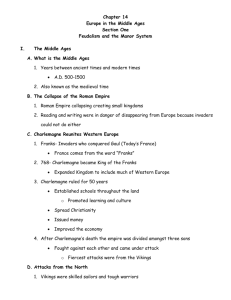Manorialism - Walden`s World History
advertisement
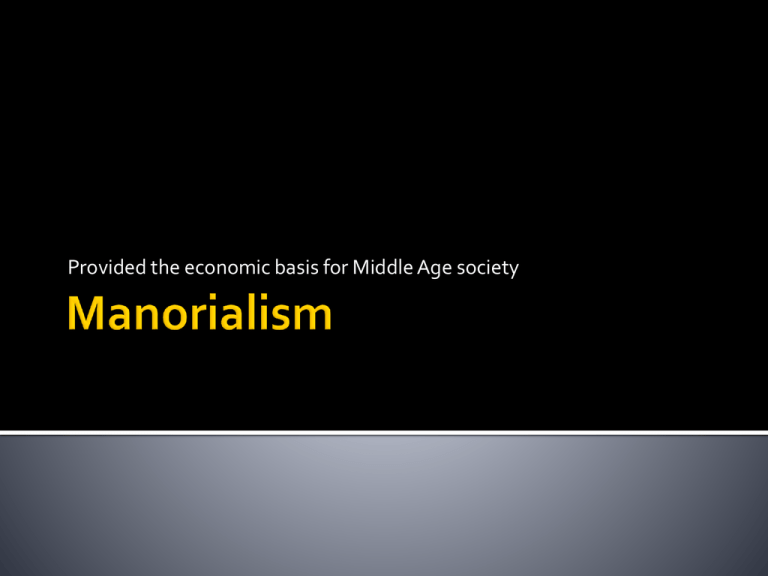
Provided the economic basis for Middle Age society Manor – piece of land under a lord’s control Given land due to service during war time by King/overlord If big enough – divided land into manors run by vassals Life of a lord – fighting to protect land Never home, so vassal ran the lord’s manor Self-supporting Supplied economic needs ▪ Cattle – meat & milk ▪ Sheep – wool ▪ Crops – grains and veggies Layout – Castle Chapel w/ rectory Mill Pasture land Forest Fields Vassal housing Peasant huts Largest work load Serf life considered property could not leave manor w/out permission Pay – hut and small piece of land to farm Always poor Difficult life paid taxes Peasant life freeman lived in village Worked extremely hard Difference between peasant and serf- peasant could move Jobs: smiths, carpenters, millers, baker, weavers, cobblers Paid heavy taxes Provide military service and fieldwork Often left freedom to live on the manor because life was too hard Reasons: Industry – demanded larger volumes of products ▪ Conversion to single crop farming Commercial towns ▪ Based on commerce – goods produced for sale instead of immediate use Return of money ▪ Replaced bartering Emancipation of serfs No more free labor
